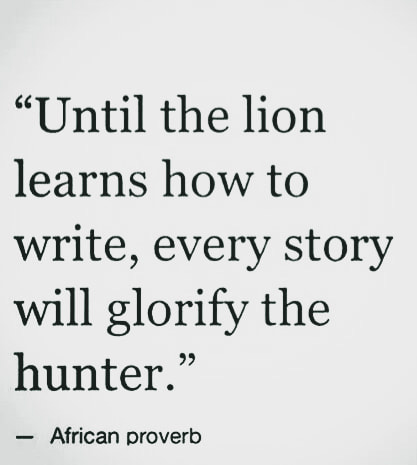Do you like what you see here? Consider subscribing so you don’t miss any of my posts. And don’t forget to share this with your friends. ‘Likes’ are welcome and so are Tips. But nothing is mandatory and I’m always happy to see you here. Thanks!
No matter what we write, our biases are showing. They live in our heads and share our creative space and burrow into our work. They’re such an integral part of us we wouldn’t know how to express ourselves without them, yet we’re often not even aware they’re there. We think we can be objective, but our biases know otherwise. They’ve been with us forever and they’re going to insert themselves. They can’t help it and neither can we.
I’ve been writing opinions for decades now, so I think I understand my own biases. I know them when I see them. That’s not to say I’m always happy with them. And that’s not to say as life goes on I haven’t changed my mind. But when I look back on my body of work the fact that I’m an unabashed liberal and a certifiable do-gooder comes through loud and clear.
It comes through in everything I write, in everything I read, in everything I do in my daily life. I’m comfortable as an old-fashioned liberal, but I recognize it’s not for everybody. That’s the fine line I have to respect when I’m writing anything outside of opinions.
The problem with opinionating is that it’s insidious. It’s hard to stop, even in settings where it might not be appreciated. I can’t assume you agree with my political opinions, for example, yet they often wiggle their way in, even when I’m not aware it’s happening.
But here’s the thing: I’m okay with it. A big part of blogging or personal writing—or even creative writing—is being honest about who we are. Unless we’re doing straight reporting, everything we write requires building a personality. Our readers count on us being us. In fact, over time they’ll demand it. If we don’t develop a persona that stays mostly constant our audience will eventually drift away. They’ll move on to someone with the courage of their convictions. (Translation: They’ll move on to someone with their same biases.)
Once we’re brave enough to open up and display our biases, we’re sure to lose some readers who can’t abide our take on things. That’s okay, too. They’re not wrong to leave; they’re simply acting on their own…what’s that word again?
Biases.
We’re never going to agree on everything, and no writer ever succeeded by trying to please the world. So is there a way to stay objective while at the same time being true to ourselves? Let’s talk about it. What’s your experience? How conflicted are you about revealing your biases? Or do you think you don’t have any?
The truth now…




Ramona, i really like the questions you pose here, and they are much on my mind because I teach first-person journalism. We are certainly all biased, sometimes in ways we aren’t aware of, and I think doing this kind of personal writing demands that we examine our own biases, both internally and publicly. Striving for objectivity in a news report is good, but even there, what’s reported isn’t completely objective or neutral - news organizations (with their own biases) make decisions about what to cover. Being explicit about biases and your own subjectivity can, ironically, feel more credible to readers than false objectivity.
As a personal nonfiction writer, I understand the need for constancy in my writing voice and sensibility, but I think there’s real value in letting readers know how your beliefs and biases may have changed over time. I’m not so sure that readers will flee if you aren’t singing the same old tune. I’m much more interested in the ways a personal writer assesses their own history and the inevitable changes, and I respect people who change their minds, if they’re honest about why they’re doing so.
So many biases. I think that word has come to be something big and bad that it doesn’t have to be. Our biases could in fact be about big, consequential things like race/class/sexual orientation/gender identity. But they might be about more benign things like assuming everyone likes dogs or hates crocks.
I went back recently to a story I wrote … lots and lots of years ago, maybe 10 or more. My expectations of the reader to share my lens were SO pervasive I would be embarrassed to publish the story as is now. I’ll clean it up, maybe, and publish it, if I can decipher a message other than “entitled angst,” but if I end up doing that, it will take a lot of editing and most of that work will be to remove the bias that will push away readers who aren’t me.
But my biases in many ways get me closer to my ideal reader. As a woman who writes about motherhood, many of my readers will be share some of those biases. As a progressive writing about societal issues such as women’s reproductive rights, I’ll want to attract readers who share that perspective. (In fact, the query letter for my novel challenges readers to question “the bias inherent in society’s laws.”)
So - biases are important, as long as we’re conscious about how we’re using them to connect with readers. My ¢¢